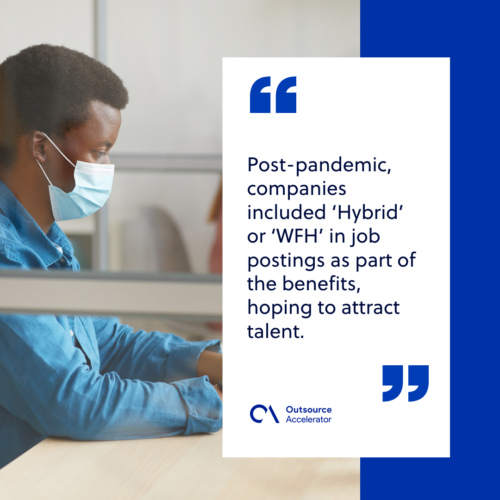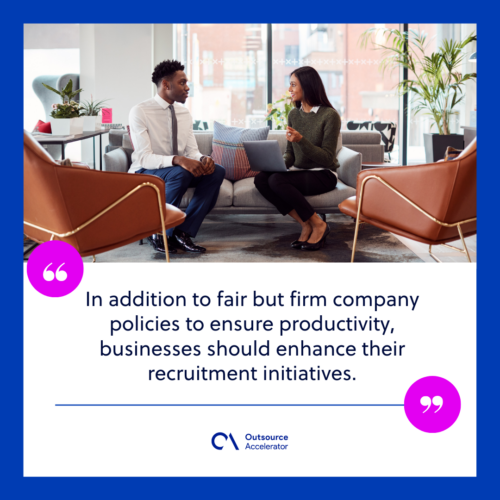Battling the expectation of flexible conditions
A company hires a prospect because of their potential. It keeps them because of their performance. A sustainable business is ultimately a high-performing team, it’s not a family or charity.
This means that employees need to deliver first-rate results — even if they’re working in their cubicles in an office or on a beach, drafting emails while basking in the sun.
The world’s greatest companies are built on a level of trust and understanding of this ‘commercial contract’ between firms and their employees. This will never change, even amid the ongoing work revolution, where workers have the flexibility to work anywhere they choose.
Flexibility and work-from-home arrangements are one of the consequences brought forth by the COVID-19 pandemic that crippled the world for almost three years.
To keep the business afloat, firms adapted by allowing their workers to work from their personally-crafted stations.
A ‘benefit’ of employment
Post-pandemic, companies included ‘Hybrid’ or ‘WFH’ in job postings as part of the benefits, hoping to attract talent. It’s a smart move. However companies should not necessarily include it in its mission statement.

It can send the wrong message to candidates who might blame their toddler with anger issues or their rabid pet dog for dips in productivity. One of the tenets of trust is accountability.
Working from home is not a benefit. It is a privilege afforded to us by technology and is only inherent in certain professions. Plumbers cannot fix your pipes while sitting on their couch.
Besides, newspaper reporters and media folk have been under a remote work arrangement forever.
The world is their office. Armed with their mobile devices, they scour for stories through interviews, public documents, or press releases.
They’re not subject to daily punch time clocks. Their job is done only once their stories are published or aired.
Talent search
Despite numerous studies showing that flexible WFH arrangements have not negatively affected productivity, employers should keep their guard up. They say, “Trust, but verify.” They also say, “When the cat’s away, the mice will play”.
It is great that staff are given the autonomy to work from wherever they like. But they must still remain accountable. This is not to say that employers need to resort to screen monitoring software to monitor activity, but some form of oversight needs to take place.
In addition to fair but firm company policies to ensure productivity, businesses should enhance their recruitment initiatives. In addition, employers have access to increasingly more powerful, tools and technology that make remote management, accountability, and online collaboration more natural.

However, the best cure is prevention. In relation to employment, this means laying down the ground rules from Day One and recruiting for talent based on principles of hard work, trust, and accountability. This ensures that firms attract people who can get things done, regardless of their work arrangement.
Setting ground rules and accountability to those rules from the start is important. Communicating that a job is a commercial arrangement at its core, and inviting prospective employees to participate reiterates the commercial construct of the arrangement. And on this basis, WFH should be seen as a benefit and not an expectation.
Question for your business
How does your business ensure productivity amid WFH and flexible arrangements?

 Independent
Independent





















